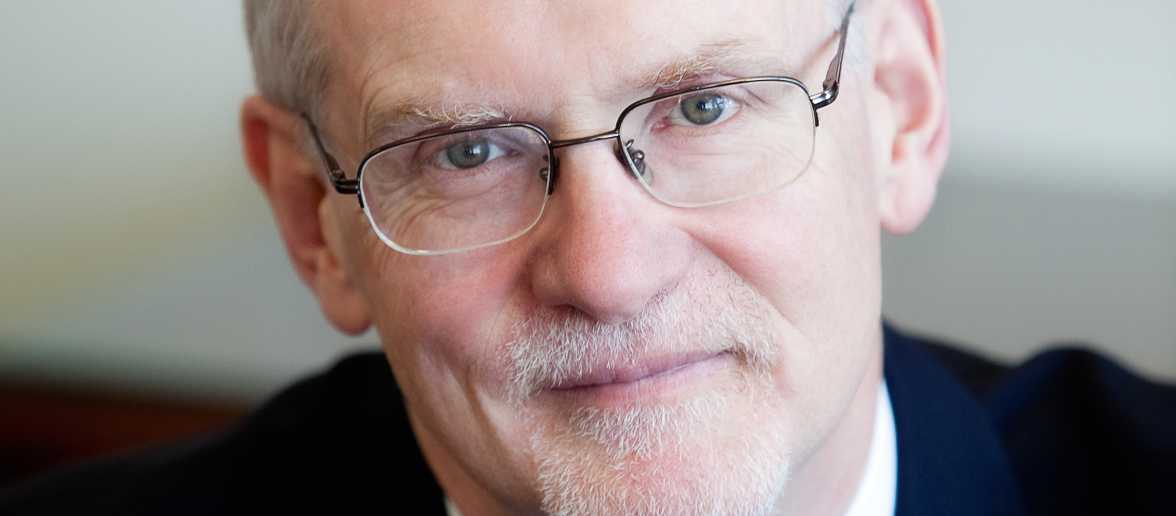
6 Questions for Paul Boothe: how ecofiscal measures spur innovation
“If you put two economists in a room, you get two opinions, unless one of them is Lord Keynes, in which case you get three.” So said Winston Churchill. So what happens when you put 12 leading economists in a room and ask them to focus on one of the biggest challenges of our time: growing economic and environmental prosperity in Canada? You get Canada’s Ecofiscal Commission. This Commissioner blog series gives you a glimpse into the diverse personalities and perspectives behind our work — and what it takes to wrestle through the big issues together.
- What convinced you to join the Commission?
My final job as a senior public servant was Deputy Minister of the Environment, so I obviously had a very deep interest in how we use policy to address environmental issues. At the same time, much of my career was spent as an economics professor, so it was natural for me to be interested in how you combine analytical frameworks and policy framework to deal with these important societal issues. The other big draw for me was a chance to work with some of the real leaders in the field.
- As well as serving as Deputy Minister of the Environment, I know you were senior Associate Deputy Minister of Industry. What impact would the kind of policies that the Ecofiscal Commission is proposing have on Canadian businesses?
If we are able to improve environmental incentives for the private sector, we may see a lot of innovation in the Canadian economy. Pricing carbon would probably have the biggest effect on stimulating innovation and growth of firms producing renewable energy. Another example would be stimulating innovation to make our use of energy more efficient. If you can find innovations that reduce the need for energy, that’s a gain for the whole economy.
- How receptive do you think Canadian businesses are to the idea of putting a price on pollution?
When we talk about innovation and technical progress, we almost always underestimate the ingenuity of society — and the private sector especially — to respond to new incentives. But history shows that we generally get more bang for our buck then we originally expected.
- What do you see as some of the most troubling examples of how Canada’s current fiscal system holds back innovation and productivity?
When you’re dealing with vehicle emissions, regulations do a pretty good job. But in other areas, for example the oil and gas sector, looking at economic instruments is very useful. The most encouraging piece of evidence we have is the B.C. carbon tax: the B.C. economy is not only doing quite well, but the environmental benefits were more than people originally expected. That’s a very valuable and compelling piece of evidence.
- Can you explain why we’d end up with more innovation when you start taxing pollution?
People are smart and they understand how different sets of incentives affect them. Taxing pollution incents people to use their ingenuity to find ways to do things with less pollution.
When you compare Canada to other jurisdictions, we’re underusing these tools, and the jurisdictions that are making greater use of them are doing well. That’s the other piece of evidence that suggests that we need to take these things seriously.
- How are you going to measure the success of the Ecofiscal Commission?
The most immediate thing will be whether we produce sound, practical advice for governments and whether policy makers use these economic instruments to improve both environmental and economic outcomes. But ultimately our work has to be measured by how it helps improve the environment and the economy. We won’t really know the answer to this latter question for some time, but the sooner we get started, the sooner we’ll see the results.
About the Author
Paul Boothe is a professor at Western University, at the Richard Ivey School of Business, a former Deputy Minister, Environment Canada and former Deputy Minister, Finance, Saskatchewan, as well as a Commissioner of Canada’s Ecofiscal Commission.




Comments are closed.